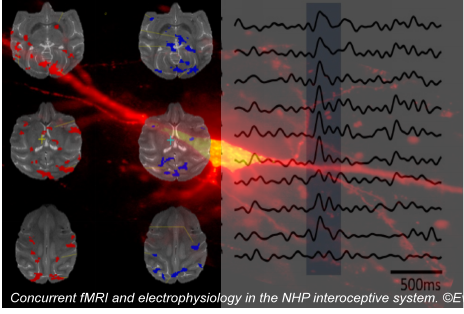Time:2024-01-12
The International Center for Primate Brain Research (ICPBR) was founded jointly by the Chinese Academy of Sciences and the Shanghai Municipal Government in February 2018, relying on the Center of Excellence in Brain Science and Intelligent Technology (Institute of Neuroscience) of the Chinese Academy of Sciences (http://www.cebsit. cas.cn/). The Institute faces national strategic needs, focuses on international frontier scientific problems in the field of primate research, and is committed to becoming the world's top brain science research institution and a convergence of international brain science talents. The International Primate Brain Research Center is co-directed by Academician Muming Poo and Nikos Logothetis. The workplace is located in Songjiang G60 Brain Intelligence Science and Innovation Base.

The DEB Lab examines the structural and functional organization of neural pathways engendering subjective awareness of feelings in humans. More precisely, the goal of the lab’s research is to better understand how interoception and embodiment shape emotional and cognitive processes underlying functional brain network dynamicity and behavioral correlates of perceptual awareness. To this end, we combine architectonics, tract-tracing, electrophysiological recordings, local causal manipulations, and functional neuroimaging (fMRI) in non-human primates. We are looking for multiple candidates to contribute either to in vivo electrophysiology/neuroimaging (project 1) or to in slice patch-clamp single cell recording and sequencing (project 2).
- PhD in neuroscience, psychology, cognitive science, medicine, mathematics, physics, engineering, or computer science.
- Prior experience (Project 1): electrophysiology (spike/LFP) in animals or humans, or NHP behavior, or fMRI, or multivariate data analysis.
- Prior experience (Project 2): patch-clamp recording (any animal species).
- Experience with Matlab/Python/R programming and analysis of neurophysiological data.
To get more information, please directly contact Qian Liang (qian.liang@icpbr.ac.cn) or Henry Evrard (henry.evrard@icpbr.ac.cn).
 附件下载:
附件下载: